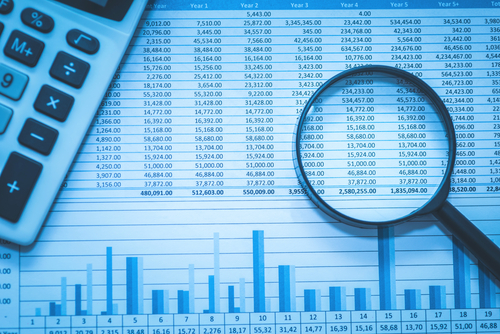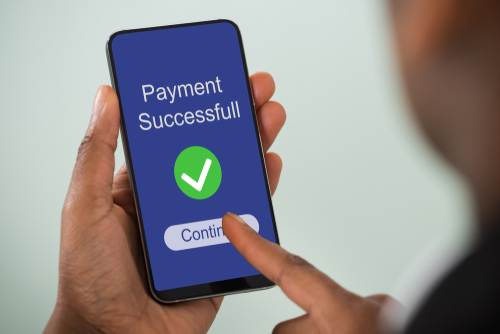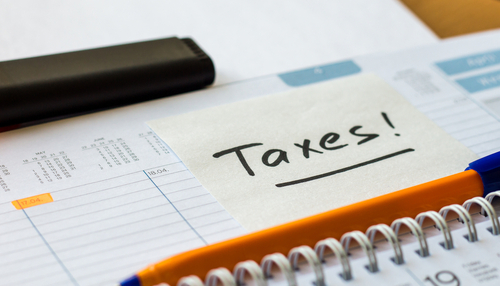Rental property management includes several important tasks, including accounting and reporting. That said, it’s crucial that property managers have strong accounting skills and understand how to overcome challenges that may pop up. So, if you want to learn more about rental property accounting challenges and how to handle them, just keep reading.

Contents of This Article:
- What is Rental Property Management Accounting?
- Top Rental Property Accounting Challenges
- How to Handle Rental Property Accounting Challenges
- How to Find a Good Property Management Team
What is Rental Property Management Accounting?
Properly managing your money while owning a rental property business is vital. After all, you want to stay compliant and efficient while maximizing profits.

Rental property management accounting consists of managing income and expenses. Some every day rental property finances include rent payments, security deposit fees, maintenance expenses, repairs, and more.
Managing your rental income and expenses requires excellent accounting skills. However, no matter how diligent you are, some rental property accounting challenges can still pop up. So, if you want to make accounting easier and avoid potential issues, read along as we go over some tips.
Top Rental Property Accounting Challenges
Whether you’re a Northern Virginia property manager or a landlord managing your own properties, learning how to avoid accounting challenges is key. That said, here are five of the most common accounting challenges you may experience while managing rental properties.
- One Bank Account for All Funds
- Collecting and Tracking Rent Payments
- Account Reconciliation
- Tax Documents and Financial Statements
- Paper Invoices and Receipts
One Bank Account for All Funds
Keeping business and personal funds in the same account is a recipe for disaster. It can be extremely challenging to separate business income and expenses from personal finances, which can cause major accounting issues.
That said, keeping personal and business funds separate is crucial whether you own one property or several. Some multifamily owners even keep separate accounts for each rental property.
Collecting and Tracking Rent Payments
Another major accounting challenge for property managers is rent collection. Keeping track of payments coming in, late fees, security deposits, and rent reminders can be a lot to juggle all at once.

Additionally, documenting each transaction can become a lot of work if you accept different payment types like cash, money orders, checks, and online payments.
So, if you don’t have a sound, organized system in place now, it’s time to come up with one. For example, most landlords use online payment software to help save time and stay organized.
Account Reconciliation
Reconciling your records is another important step in rental property accounting. Reconciling your accounts weekly or monthly can ensure your money is accounted for correctly. However, reconciling can become an issue if you don’t have the right software.
For instance, some software allows landlords and property managers to sync with your bank and compare transactions from the bank to those in the software. In turn, this allows you to catch any errors and quickly find missing details.
Tax Documents and Financial Statements

Another large part of rental property accounting is handling monthly and annual financial statements and tax documents. After all, sending out and filing 1099s and other tax paperwork can be tedious, complex, and time-consuming.
Need More Advice?Additionally, tax paperwork issues can result in IRS audits or penalties. So, finding a way to accurately automate the process is crucial for your rental property business. Luckily, several advanced programs automate the preparation, sending, and filing of tax documents.
Paper Invoices and Receipts
Finally, relying on paper invoices and receipts is another major challenge for property owners these days. Keeping track of physical documents for each property can become confusing and disorganized very quickly. In addition, papers can be misplaced or forgotten, causing major accounting issues.
Many landlords these days automate property management and keep everything together with certain software. If you want to learn more about accounting automation and how to solve the most common rental property accounting issues, just keep reading.
How to Handle Rental Property Accounting Challenges
Are you experiencing any of the accounting challenges above? Luckily, there are a few ways that you can switch up processes to better handle issues that pop up. Here are some tips to consider if you need help automating your rental property accounting.
- Open a Business Bank Account
- Use Accounting Software
- Set Up an Emergency Fund
- Hire Professional Property Management
Open a Business Bank Account
One of the first things you’ll want to do as a landlord is open a business bank account. As stated earlier, commingling funds makes it extremely challenging to separate business and personal finances. So, even if you only own one rental property, you’ll still need a business checking and savings account.
Although it’s not necessary, some landlords open separate bank accounts for each rental property. However, it’s advisable primarily for landlords with multifamily properties with payments and expenses for each rental unit.

Use Accounting Software
Automation is one of the best ways to solve most accounting challenges. After all, many errors come from human mistakes like misplacing paperwork, missing numbers while calculating finances, and more. Additionally, accounting and data entry is one of the most time-consuming tasks for landlords and property managers.
That said, most accounting software allows you to generate invoices, automate rental payments, and record and document all transactions. A few great accounting programs for landlords include Stessa, Property Matrix, and Appfolio.
Set Up an Emergency Fund
Unexpected expenses can put a massive dent in your profit margins. Therefore, planning for emergencies by setting up a particular savings account can be highly beneficial. Each month, take a small percentage of rental income to put into your emergency savings account.
Then, when a significant expense pops up, you don’t have to pull from personal finances to pay for it. Instead, you’ll have a buffer to rely on when emergencies arise.
Hire Professional Property Management

Most landlords are fully capable of handling accounting duties on their own or with the help of appropriate software. However, one of the best ways to take accounting challenges out of your hands is by hiring residential property management in Northern Virginia.
Having an experienced professional to manage your properties and finances can ease worries and give you peace of mind. Although it’s an added expense, a good property management team can help with all aspects of your rental business. Additionally, relying on management experts can allow you to avoid added liability.
How to Find a Good Property Management Team
Rental property accounting challenges can take a toll on your business and financial goals. As such, solving any major issues immediately is essential. In addition, finding resources to help manage your business accounting can help take some work off your plate and maximize your profit goals.
Contact Bay Property Management Group today!
If you’re a landlord looking for a top-notch property management team to handle accounting for your business, look no further. Bay Property Management Group offers comprehensive rental management, including rent collection, monthly and annual financial statements, and more.
Our qualified professionals work hard to achieve your business goals. So, if you’re looking for rental property management, contact BMG today! We serve areas such as Baltimore, Philadelphia, Northern Virginia, and Washington, DC.
